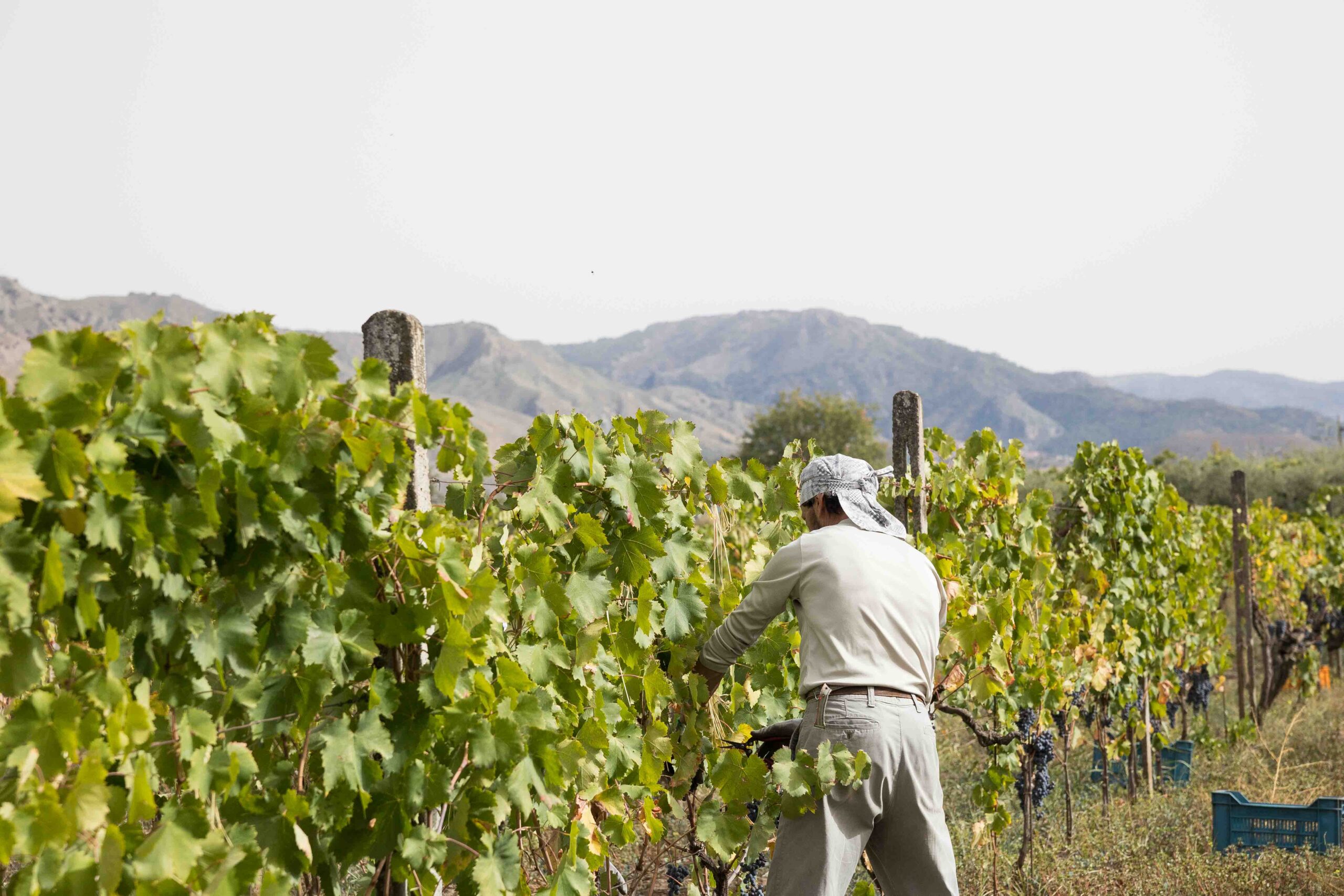Green management: the silent art behind a quality wine

When we think about wine, we often focus on the harvest, the cellar, the refinement. But there is a fundamental – and silent – phase that happens much earlier, between the rows, in the middle of spring: it is called green management, and it is one of the keys to obtaining healthy, quality grapes.
Manual, precise, daily work
With the start of the growing season, the vines start growing again. And it is precisely at this moment that manual care of the foliage comes into play: a set of small, precise interventions that help the plant to develop in the right way.
But why is it so important?
Because every leaf more or less can make a difference. The leaves, in fact, are the engine of the vine: they produce sugars, aromas and polyphenols through photosynthesis. The bunches, on the other hand, are the containers that collect this wealth. Just like a spring and a well: one produces, the other accumulates. If the balance between the two is not well calibrated, the equilibrium is broken. Too much vegetation and the bunches remain in the shade, more exposed to humidity and disease. Too little, and they do not ripen as they should.
The balance between vigor and quality
Green management serves precisely this purpose: to find the balance between what the plant produces and what the fruits must accumulate. A balance that cannot be improvised, but is built every day, with care and attention, respecting the shape of the vine, its strength, the climate of that year.
A gesture that can be felt in the glass
For those who work the vineyard with passion, it is one of the most delicate phases of the season. For those who taste wine, it is one of those that can be perceived in the glass, without knowing it: in a clearer aroma, in a more harmonious structure, in a sip that tastes of precision and respect.
On the northern side of Etna, where time passes more slowly and each vine has its own story, it is precisely these gestures that make the difference. And to prepare the ground – it must be said – for what wine can become.
